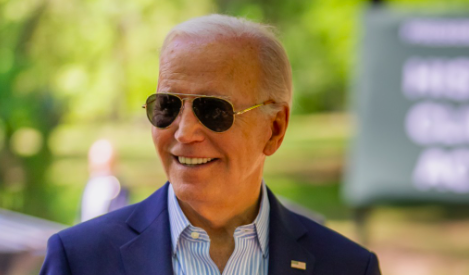China mocks America… but Biden could embarrass Beijing

China mocked America as President Joe Biden faltered and his Republican challenger Donald Trump made extravagant claims during their presidential debate on CNN on June 27. Chinese netizens taunted the aged adversaries. “One is a ‘mentally deranged felon’ and the other is an ‘elderly narcoleptic’,” said a post on Weibo. “Two people who are about to enter their coffins are fighting back and forth,” said another. “Western politics is truly ruptured. There’s no one left.”
State media took a dim view, too. China’s official Xinhua news agency said the debate had “merely exposed the chaos and division of ‘American democracy’ to the world once again”.
The debate between a befuddled Biden and an un-fact-checked Trump was a shambles compared with an official event the same day in Beijing where China’s paramount leader Xi Jinping gave a speech. Reading confidently from a script, he projected power and authority. “Every increase of China’s strength is an increase of the prospects of world peace,” he said, magisterially ignoring anxieties in the region and the world at large about Beijing’s growing power.
‘Democracy that works’
The unchallenged power of the communist regime in China is in sharp contrast to the disunited state of America. But while China mocks America, it resents criticism. Beijing cannot tolerate Biden’s depiction of global politics as a tussle between democracy and autocracy. It claims its political system is a “democracy that works”. Infuriated by Biden’s “summits for democracy” and forging alliances to contain China, Beijing has been extending its sphere of influence, too.
The political and economic machinations on both sides have resulted in a new cold war.
Better days
The Economist says in the 1980s, before the 1989 Tienanmin Square massacre of protesters in Beijing, the Communist Party had a far better relationship with America.
In the 1988 US presidential election, when the Republican George Bush senior ran against the Democrat Michael Dukakis, the Democrats invited a Chinese delegation to observe its convention in Atlanta. “China can learn from some methods and forms in the US presidential election,” said the group’s leader, Gu Ming. “For example, there should be a higher degree of openness in the election of leaders at various levels.”
Wang Huning, the Communist Party’s chief ideologue and fourth-highest ranking official, also saw America as a visiting scholar in the late 1980s. “There’s a wonderful thing about the American political system: you can’t say it’s undemocratic, and you can’t say it’s democratic,” he wrote in America Against America, which was published in 1991. “This procedure is very interesting and has a high degree of openness,” he said of presidential debates.
Wary now
Now wariness defines the US-China relationship. Deeply divided though America is today, there is consensus on China. Democrats and Republicans alike believe China’s rise is a challenge to American power. Biden and Trump both favour tariffs on Chinese goods to protect America from what they see as China’s unfair trading practices.
Enjoying this article?
Subscribe to get more stories like this delivered to your inbox.
There are voices of moderation, though. Some in China would like to see California’s governor Gavin Newsom become the US president. They have circulated clips of Newsom’s trip to China last October. He became the first American governor to meet Xi Jinping in six years. Newsom stressed there could be no divorce between the two countries.
But Newsom isn’t running for president. Biden is. And that could culminate in a problem for China. The Economist says: “Chinese officials may wince should pressures on Mr Biden result in his stepping aside. Some daring netizens might venture to point out that such a situation would be hard to imagine in what China calls its “true democracy”. Like him or not, they may be stuck with the 71-year-old Mr Xi for as long as he lives.”
